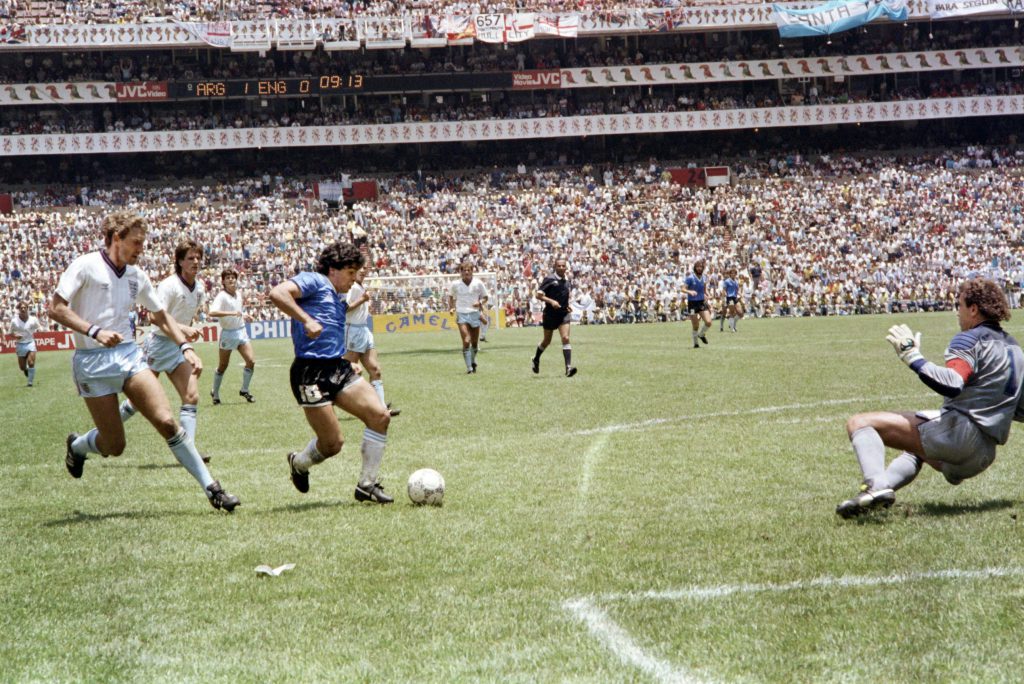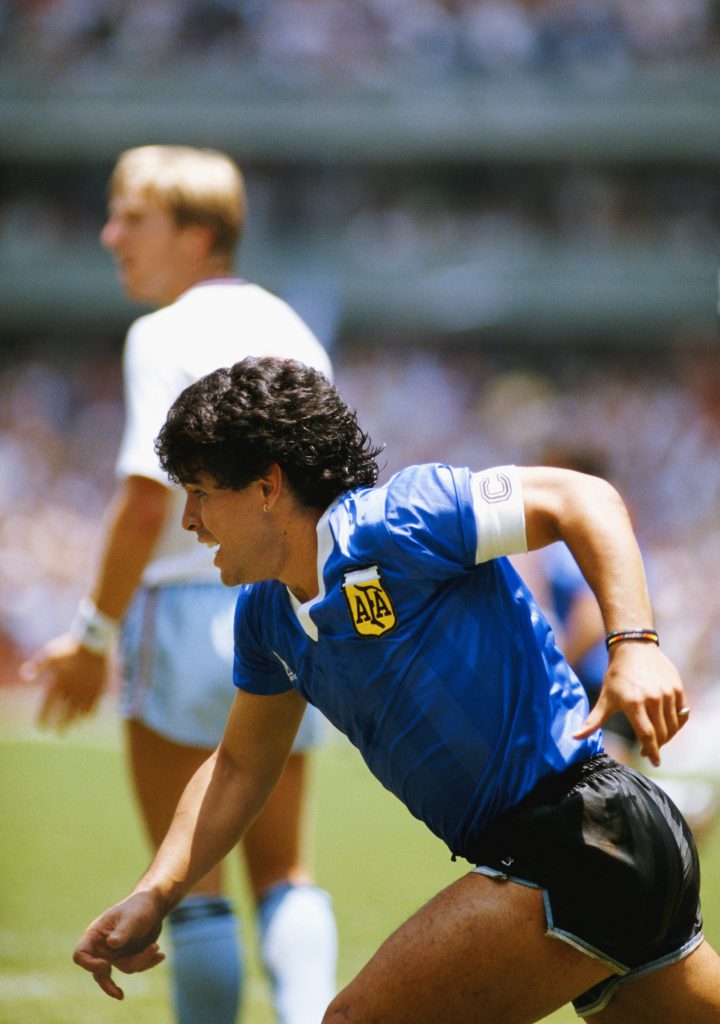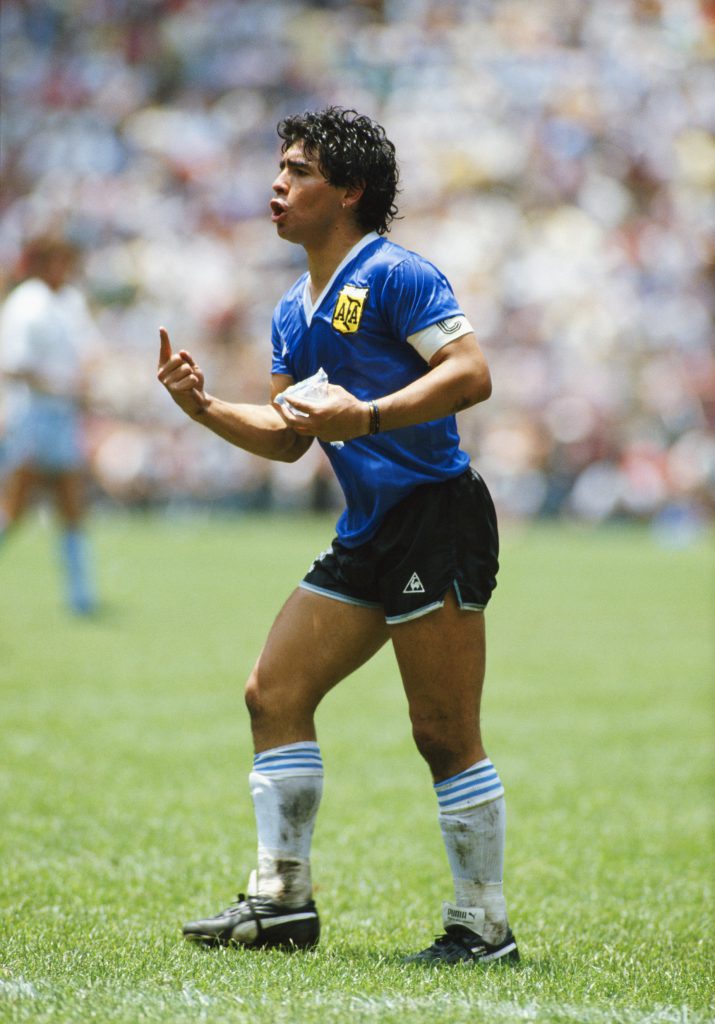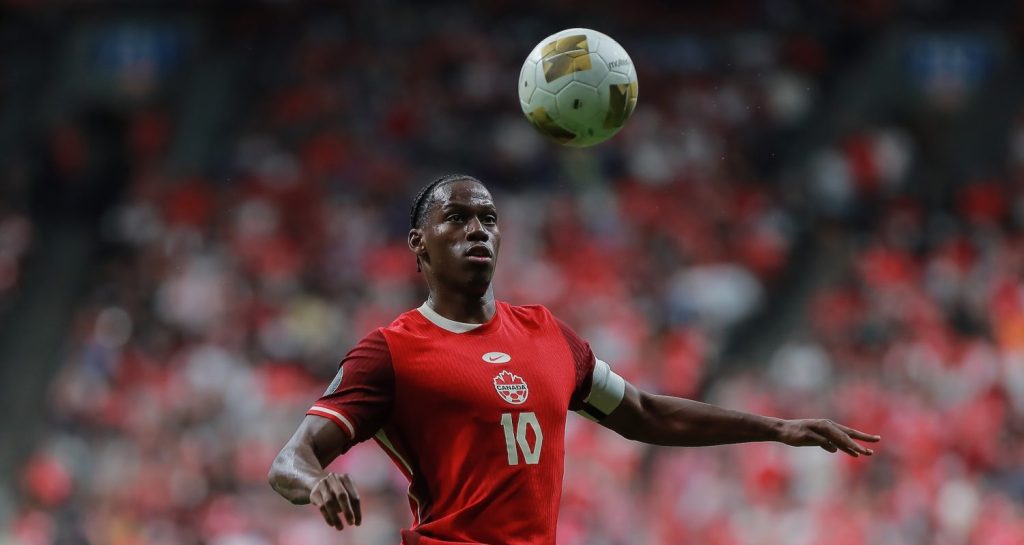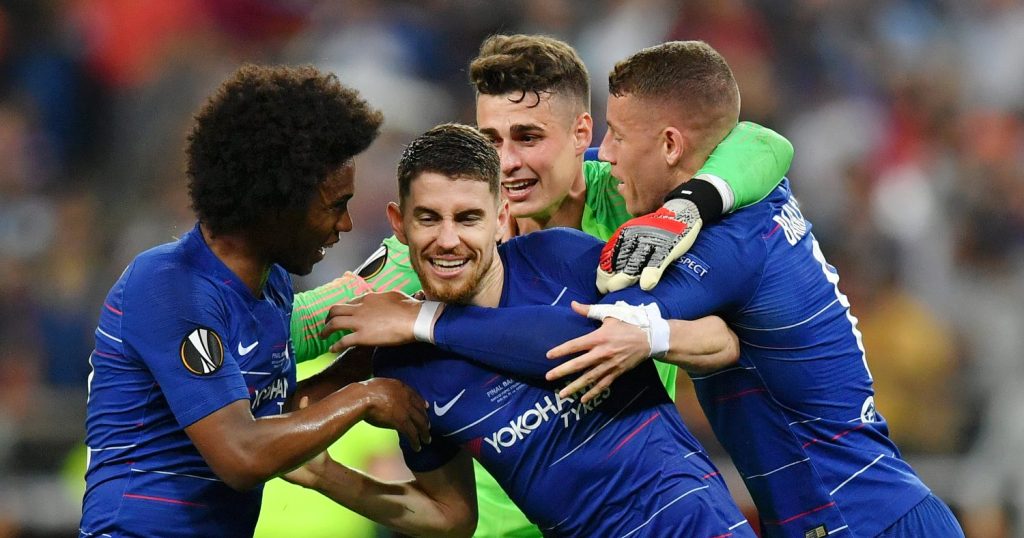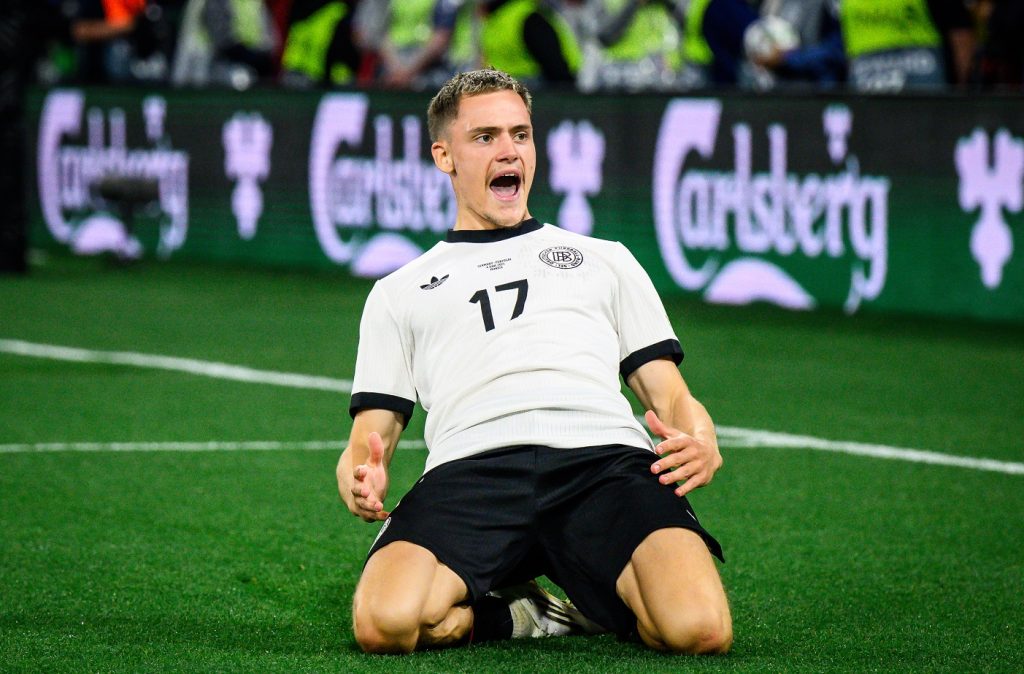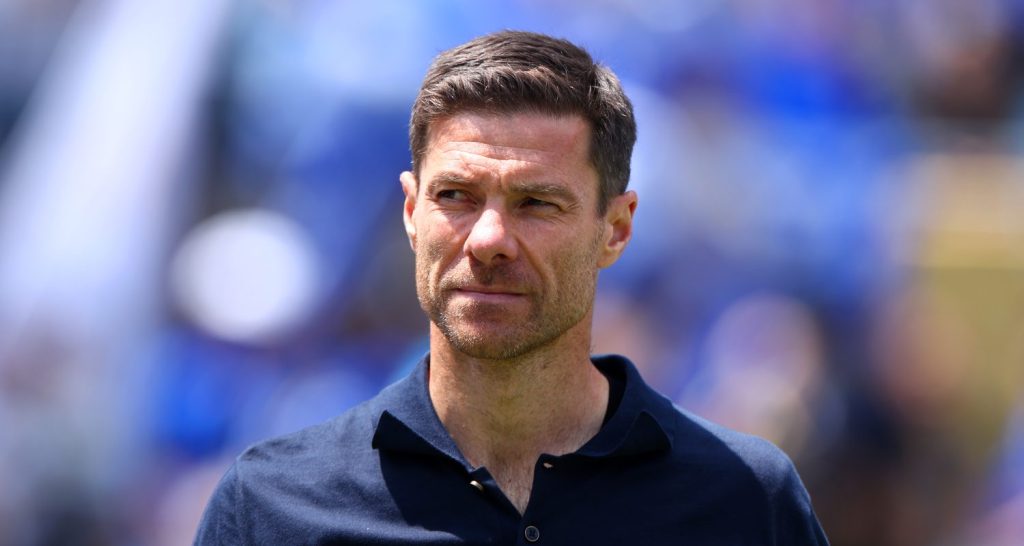Undici in collaborazione con Puma Eyewear presenta #NoCage, il format che raccoglie le storie di 12 personaggi sportivi contemporanei e del passato, che hanno cambiato la storia dello sport superando le barriere e gli ostacoli grazie alla determinazione e alla forza di volontà.
“Io c’ero”. Quante volte avremmo voluto dirlo. C’ero a Los Angeles quando Carl Lewis ci mostrò cosa voleva dire essere il figlio del vento. Ero a bordo ring quando Muhammad Ali si prese l’anima di Sonny Liston. Ero in tribuna a Wimbledon quando John McEnroe strapazzò Jimmy Connors sull’erba reale. C’ero quando quando Tardelli urlò in faccia al mondo che i sogni, anche i nostri, una volta nella vita si avverano. Quando Diego Armando Maradona se ne andò via in mezzo agli inglesi, ballando una musica soltanto sua, ta-ta-ta-ta. Lo chiamiamo il gol del secolo, ma è molto di più. E allora ce lo siamo fatto raccontare da chi l’aveva già raccontato una volta, in diretta, intuendo che quello a cui aveva assistito era uno di quei momenti che non si dimenticano più. Quattro inviati dei quotidiani italiani ai Mondiali di Messico ‘86. Trent’anni dopo siamo tornati da loro, e ci siamo fatti raccontare quel Mondiale, quel giorno, quel gol. Il resto è fantasia, come in quel volo di Maradona incontro all’impossibile. Loro c’erano.
Con Michele Serra – Inviato dell’Unità
L’altoparlante annunciò di nuovo il volo in partenza da Buenos Aires. Ernie alzò gli occhi, credette di sentire la voce di dio. «Odio volare», mugugnò tra sé afferrando la valigetta con l’impugnatura laccata. «Milano-Roma-Mosca-Dublino-L’Avana-Città del Messico». «Come dice?», domandò Ernie. «Milano-Roma-Mosca-Dublino-L’Avana-Città del Messico, trentasei ore di viaggio con le ginocchia in bocca su aerei Aeroflot. Costa di meno, mi avevano detto». «Uh», fece Ernie. Pensò che quello doveva essere stato davvero un viaggio da schifo, con gli scali, le attese infinite negli aeroporti, e tutto il resto. «E poi?», chiese Ernie. Fare un po’ di conversazione, in fondo, gli sembrò un buon modo per ingoiare la paura, o almeno per distrarsi, mentre l’hostess più bionda che avesse mai visto gli ordinava con un sorriso di allacciarsi le cinture di sicurezza. «E poi, e poi. Sono passati trent’anni», rispose quello. Ernie gli lanciò un’occhiata. Quell’uomo aveva con sé diversi giornali, un libro, un’agendina tascabile; tutte cose che gli infusero un indecifrabile bisogno di sentire il resto del racconto, qualunque cosa fosse. Annuì con la testa, dimenticandosi persino dell’aereo che sarebbe decollato da un momento all’altro. «Trent’anni. Ma ho un ricordo abbastanza preciso dei miei quaranta giorni a Città del Messico. L’aria rarefatta e carica di polveri, una sensazione di vita insalubre, i morti di fame che dormivano nelle aiuole davanti al lussuoso albergo Chapultepec, nel quale l’Unità, forse per un errore contabile, mi aveva sistemato dopo un allucinante viaggio lungo quell’indimenticabile rotta: Milano-Roma-Mosca-Dublino-L’Avana-Città del Messico».
Più quell’uomo parlava e meno Ernie badava al rollio, né al soffio ruggente e caldo dei motori, o all’inclinazione dell’abitacolo mentre la carcassa di metallo e bulloni prendeva quota. E d’un tratto, a voce alta, disse: «Ah, ma certo, il mondiale messicano. Quello del 1986», esclamò. A Ernie sembrò quasi di esultare. Ma nessuno se ne accorse. «Arrivato verso i quarti di finale avevo imparato a campare un po’ meglio. Mangiavo nei ristoranti argentini, carne e formaggio, formaggio e carne, un vegano si sarebbe impiccato al primo lampione. E lavoravo molto, con l’eterna ansia di non riuscire a trovare il telefono libero, in albergo, per dettare l’articolo ai dimafonisti…». Lieto di potersi trastullare con un po’ di ricordi, Ernie si accorse che dentro di sé erano rimaste solo immagini spezzettate, ruvide, piuttosto tristi di quegli anni. Come l’incidente di Chernobil. O le tensioni tra l’Italia e il colonnello Gheddafi. Maradona fu un lampo, ma almeno piacevole. «E Maradona?», chiese con l’ingenuità di un bambino. «Era tranquillo, disponibile e sorridente, l’esatto contrario dell’ombroso, sarcastico Platini, che era l’altra grande star di quel mondiale, e nel ritiro francese ci accolse in malomodo. Diego era tutto l’opposto. In allenamento, da pochi metri, ammirai la struttura di Maradona: meno basso di come credevo, ma con una figura piuttosto tozza, quasi cubica, massiccia, apparentemente incompatibile con l’agilità e la velocità. Pensai che se il calcio è lo sport più amato al mondo è anche perché permette di eccellere a nani, giganti, smilzi, forzuti, compassati, isterici… chiunque, insomma».
Hoddle, Reid, Sansom, Butcher, Fenwick e Shilton, nessuno riesce a fermare El Diez
«E quel gol, quel gol se lo ricorda?». Non ci fu nemmeno bisogno di nominare gli inglesi. Quel gol, per Ernie, e forse per tutti quanti, era il gol che Maradona aveva segnato all’Inghilterra. «Che prodezza, che meraviglia, quella. Lo vide anche lei, era proprio lì quel giorno?». L’uomo fece una pausa. Il tramonto visto da quell’altezza sembrava ancora più potente e luminoso, e dai finestrini entrava una luce viva e gialla, la stessa che accende i pensieri. «Beh sì, certo. Ho visto tutte le partite dell’Argentina nella fase finale, per giunta confuso nel gruppo dei giornalisti argentini, e sull’intera faccenda gravava qualcosa che assomigliava molto a un destino ineluttabile. Avevo come l’impressione che gli avversari, Belgio e Inghilterra, tranne la Germania in finale che ci provò, fossero in partenza rassegnati di fronte a quello che era il mondiale di Maradona. Anche grazie all’assurda guerra delle Malvinas, che aveva sovraccaricato di enfasi patriottica la spedizione argentina. Così quel gol, che pure ebbe una struttura quasi insensata per il calcio moderno – l’uomo solo che ne scarta tre, quattro, cinque, se fossero ottanta ne scarterebbe ottanta – mi sembrò quasi normale, nel senso che niente poteva fermare Maradona». Ernie non disse nulla. Ascoltava. Ascoltava all’altitudine giusta per sentire i sogni vibrare dentro la testa. Un’altra pausa, e poi l’uomo continuò quel racconto che veniva su dalle nebbie del tempo, dalla polvere, o forse giungeva da un altro universo: «Non voglio dire che me lo aspettavo, ma insomma lo stupore fu leggermente meno grande di come sarebbe stato in una situazione diversa.
Era come se Maradona corresse in discesa e tutti gli altri in salita. E lo vidi benissimo, l’Azteca è uno stadio di notevole verticalità, gli spalti sono in piedi sul campo, le azioni si vedono quasi dall’alto. L’ideale per chi si appassiona di tattica di gioco e di schieramenti in campo: sembrava un subbuteo». Ernie rise, e poi si voltò per guardare fuori. Con gli occhi che scintillavano ripensò al gol che era stato a lungo un desiderio della sua giovinezza, a quante volte, per strada, con gli altri ragazzi, si avventurava in una serie di dribbling esasperati, violenti, nervosi. «Ma come si fa a fare un gol così? Come? Lei ne ha mai visto un altro più bello, un altro più bello e assurdo di quello?», domandò senza voltarsi. Ernie sentì la voce dell’uomo arrivargli come un suono flebile, un soffio che percepì prima di addormentarsi: «Francamente no, ma non seguo il calcio con sufficiente assiduità per poterlo dire. Magari su qualche campo minore accadono mirabilie delle quali nessuno saprà mai niente. Quel gol è certamente il più bello che ho mai visto per il semplice fatto che azzerava il concetto di tattica, di squadra, perfino di agonismo in favore del concetto di fuoriclasse. Quello che da solo ribalta il mondo. Quello che non lo avrebbero fermato neanche con un posto di blocco. Un gol da bambini, da nino de oro, appunto. Dove “de oro” conta, ma conta di più “nino”». Quando Ernie si svegliò, l’aereo era atterrato da un pezzo. Il sedile vicino al suo era rimasto vuoto.
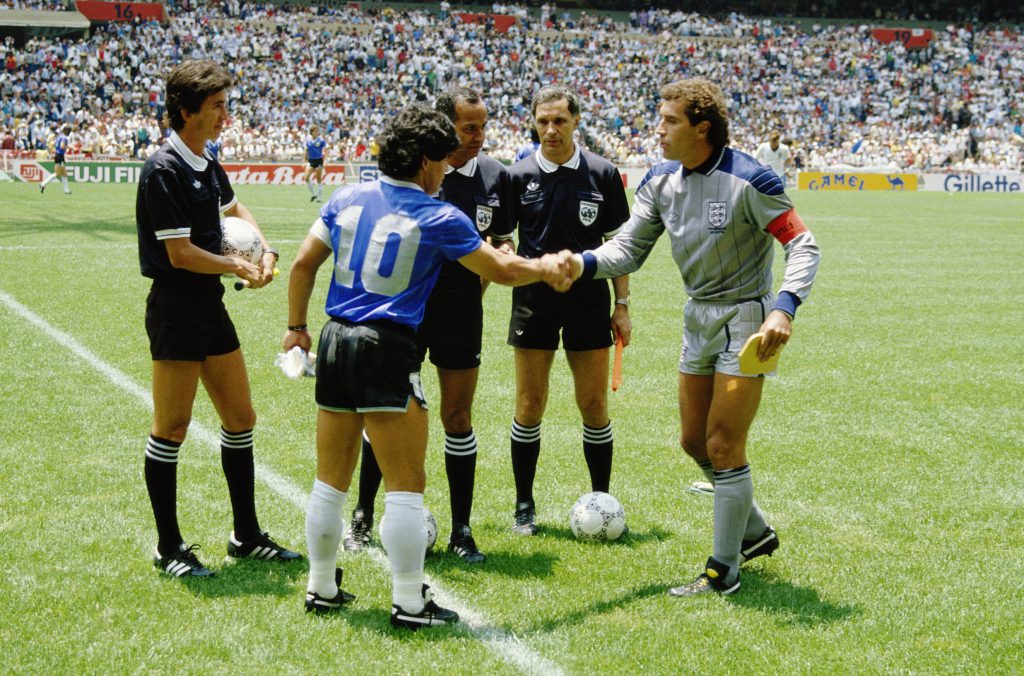
Maradona e Shilton si stringono la mano prima di Argentina-Inghilterra (David Cannon/Getty Images)
***
Con Lodovico Maradei – Inviato della Gazzetta dello Sport
Si stava addormentando col boccone in bocca, quando lo sportello si aprì di colpo e un’ombra chinò la testa. Andy sentì la vergogna salirgli dallo stomaco come un soffio di vento caldo e improvviso, si ravviò i capelli, stropicciò la faccia e provò a non dare troppo nell’occhio. I clienti non amano quel genere di leggerezze. Un tassista può tutto, può anche avere il cruscotto zeppo di cartacce e riviste e facce di santini spiegazzati appiccicate al volante. Ma dormire durante il turno, beh, quello è assolutamente vietato. «Dove si va?», chiese Andy aggiustando lo specchietto retrovisore. L’uomo balbettò un indirizzo. Distratto e senza dire altro si concentrò sul paesaggio reso liquido della velocità, prese un giornale e diede una sbirciata alla pagina sportiva, quella stampata a colori. «Visto che partita ieri, eh? Che squadra!», provò ad attaccare bottone Andy. L’altro lo guardò da sotto le lenti, ma senza dire una parola restò immerso negli affari suoi. Andy imboccò la grande tangenziale lungo il cavalcavia, sentiva la macchina in pugno, la sentiva nelle mani, e provò a premere l’acceleratore in maniera del tutto impercettibile a chi stava accovacciato dietro, un tocco appena con la punta del piede, quel tanto per avvertire un brivido nelle tempie. «Certo che oggi costruiscono questi bolidi e nemmeno si possono tirare al massimo. Eh?», ci riprovò Andy. Due chilometri più avanti una spia cominciò a lampeggiare. Imprevisti di quel genere normalmente non scuotevano Andy, ma avere un passeggero a bordo rendeva la situazione dannatamente fastidiosa. E anche peggiore quando vide uscire del fumo bianco dal cofano, al punto che dovette accostare, fermare quel bolide malandato e scendere di corsa a controllare il motore. «Porca puttana!», disse Andy.
«Una volta mi successe su una Chevrolet. Si fermò di colpo, il motore era senza olio, completamente andato. Per fortuna si fermò proprio davanti a una casetta coi muri smangiati e senza infissi. Uscì un ragazzo, ci indicò che a due chilometri a piedi avremmo trovato un’officina. Più che un’officina ci sembrò l’antro di un orco. Il meccanico era zozzo, tutto sporco, lurido; indossava un maglione coi buchi e aveva le unghie nere, piene di grasso. Ci caricò sulla sua macchina e tornammo indietro. Una volta arrivati, il ragazzo e il meccanico si buttarono nella polvere sotto all’auto, ma non ci fu niente da fare. Dovettero chiamare il carro attrezzi, che però sarebbe arrivato soltanto il giorno dopo. Il ragazzo ci disse di spingerla fin davanti a casa sua, disse che ci avrebbe dato uno sguardo lui per tutta la notte». Andy guardò quell’uomo per la prima volta, lo guardò davvero, dalla testa ai piedi, nella sua pienezza. «Dove? Dov’è successo?». «In Messico. Era l”86: ormai sono passati trent’anni». Quella nebbia bianca che il vento si portava via avvolse i due uomini nascondendoli dal mondo, e allora si instaurò tra loro un attimo di complicità e simpatia. «La notte a Città del Messico è incredibile: nella zona rosa, il centro dei ricchi, con queste strade sterminate e lunghissime, lunghissime. Ma verso mezzanotte vengono fuori i campesinos, escono quasi dal nulla. Che povertà. Andando a Guadalajara vidi il cadavere di un cavallo buttato nel fosso, così, lasciato lì a marcire, e lungo le strade poi, appena oltre i selciati, c’erano queste casette malridotte, senza infissi, piene di buchi. Quanta miseria. Eppure fu un Mondiale eccezionale».
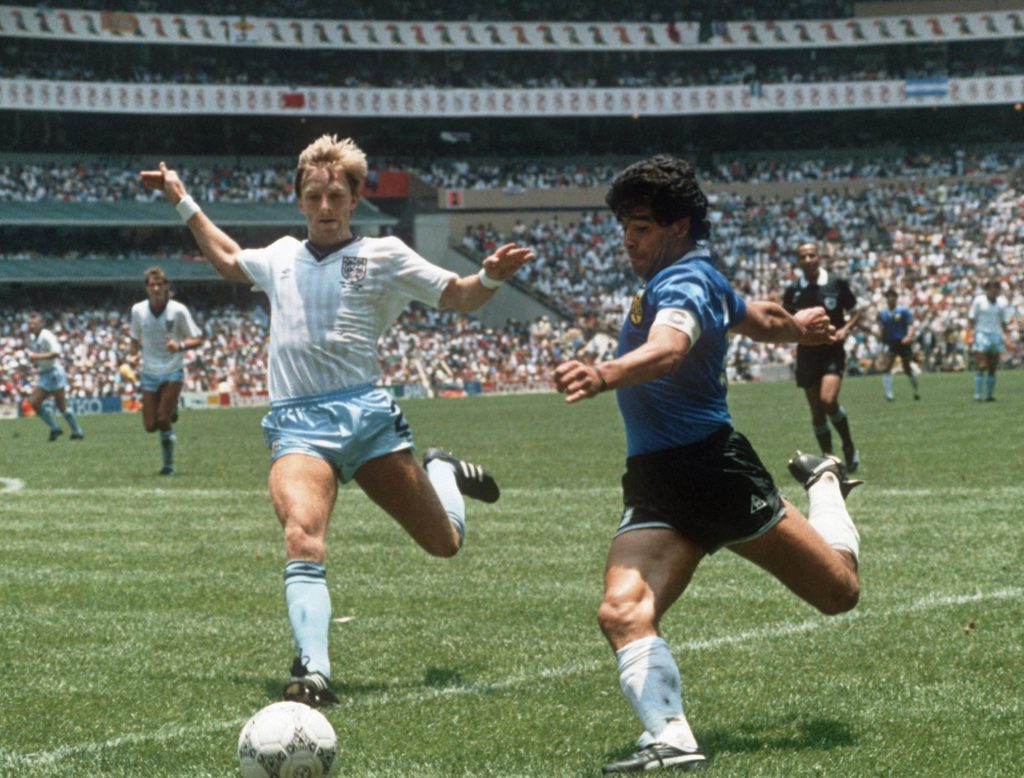
Diego Maradona tenta di crossare mentre viene pressato da Gary Stevens (Staff/Afp/Getty Images)
«Mondiale?», chiese Andy sgranando gli occhi. «Argentina! Maradona! Maradona?», osò chiedere. L’altro sorrise. «C’era la sensazione di essere di fronte a un personaggio capace di qualsiasi cosa. Maradona. Che giocatore. Ricordo la sferzata di entusiasmo che mi diede con quel gol all’Inghilterra…». «Maradona! Sì, sì!», confermò Andy. «Ogni volta che ci penso mi viene in mente un pilota di formula uno che mette la seconda, la terza, la quarta, poi la quinta e via, un cambio di marcia continuo, ma dove va, dove va, quel suo aumentare di velocità, zam, zam…». Andy guardò il radiatore, gli scappò da ridere e il fumo gli entrò in bocca. Tossì così forte che l’altro credette di vederlo svenire. «E’ stato il miglior giocatore della storia, non è vero?», riprovò Andy quando si riprese. «Lo vidi la prima volta a Londra, qualche anno prima, anche quel giorno contro l’Inghilterra. Il giornale lo aveva chiamato Maradonna, con due enne, perché in Europa non era ancora così conosciuto. Ci andai con Bearzot, che doveva studiare gli inglesi. Maradona non destò molte impressioni, no, ma fece una cosa, una soltanto, che lasciò me e Bearzot senza fiato. Addirittura Bearzot, mi ricordo, si alzò in piedi ad applaudire. Arrivò una pallaccia verso un difensore alto e allampanato. Maradona, che era molto più basso, fece uno scatto così repentino e forte, e un balzo così leggero alzando la gamba a sbarra, che stracciò sul tempo quel difensore. Nella mia immaginazione il difensore è rimasto lì».
***
Con Adalberto Scemma – Inviato dell’Arena
«Lei fuma ancora?», chiese Tully. «Vuoi scherzare? Certo che no». «Voglio dire: uno come cavolo resiste così a lungo?». «E’ una questione di principio, di capoccia, capisci? E’ una questione di testa. Una volontà che si impara. A me l’ha insegnata l’atletica leggera. Lo sport ti aiuta. Ti ci devi impegnare, altrimenti non viene niente». «Io non ci riesco». Sospirando, coi gomiti appoggiati al bancone, Tully si annusò le mani cercando un po’ di odore acre e ruvido del tabacco rimastogli appiccicato alle dita. Sentì un vago aroma di liquirizia, e se lo fece bastare. «Okay, okay. Quanto tempo è passato dall’ultima?», chiese Tully chiudendo gli occhi. «Trent’anni. Rischiai una congestione durante una trasmissione in tv. C’erano anche Bagnoli e Brera quella volta. Il medico mi disse che andavo incontro all’enfisema. Fumavo cinquanta sigarette al giorno, sai che notizia. Gli chiesi se dovevo proprio smettere. Diminuire, a smettere non ci riesce mai nessuno mi rispose quello. Mi fece letteralmente impazzire, non avere il controllo mi fa impazzire».
Tully lo guardava divertito, ondeggiando l’indice sotto alle narici. «E poi?». «Il giorno che arrivai in Messico, nell’ ’86, il giornale mi chiese una pagina. Arrivammo alle undici di sera, avevo fino alle sette del mattino dopo per consegnare gli articoli. Senti qui. A mezzanotte ero davanti alla macchina da scrivere e non mi veniva una virgola. Allora butto giù un goccio di tequila. Niente. Un altro goccio. Ancora niente. Alle quattro sono quasi sbronzo, tutto sudato, sento il terrore mordermi alla gola, sento di non farcela». Diede un’occhiata al bicchierino vuoto, e Tully si sentì colpito in uno dei suoi punti deboli. Avvertì il miscuglio dell’alcol e del fumo sulle labbra e in fondo alla gola, e gli venne voglia di prendere una sigaretta dal pacchetto e accendersi quel piacere fatto di catrame e nicotina. «Sento che potrei ricominciare», disse. «Aspetta, ascolta. Alle cinque in preda al panico apro un cassetto, e cosa trovo? Un pacchetto di Marlboro rosse nuovo di zecca. Ah. Un pacchetto. Mi è venuto un nervoso. L’ho stretto con tutte le mie forze, e poi l’ho scaraventato contro il muro. Sbam». «E dopo?». «Ho scritto tutto d’un fiato».
Tully alzò gli occhi, alla televisione davano la gara del Boca. Poi si girò verso l’uomo al suo fianco, e all’improvviso pensò a Maradona. «E Diego?». L’altro sorrise. «Ti riferisci al gol contro l’Inghilterra?». Tully fece sì con la testa. Quel balletto argentino l’aveva visto così tante volte da conoscerlo nei dettagli. Eppure non l’aveva mai visto veramente. In effetti, a pochi era stato concesso il privilegio di assistere in diretta a quel prodigio. Poi tornò ad annusarsi l’indice, e gli parve di sentire il profumo dell’erba questa volta. «Una roba del genere non l’ho mai più vista in vita mia. Giuro. Se chiudo gli occhi lo riesco a vedere chiaramente. Hai presente quelli che fanno il salto triplo? Diego saltò gli avversari con la stessa leggerezza, con la stessa agilità, e con una forza fuori dal comune. Sembrava non facesse nemmeno fatica. L’Azteca, lo stadio, era una bolgia incredibile. Prima della partita avevano lanciato dei foglietti color argento, una pioggia di foglietti d’argento. Li conservo ancora sai? Maradona prese il pallone, e partì. Come se andasse via volando». Quando uscirono dal locale Tully si frugò dentro alle tasche. Tirò fuori il pacchetto di sigarette tutto stropicciato, lo guardò un momento, con aria furba e compiaciuta: lo gettò via. «Quei gol si fanno con la volontà o con la magia?», domandò. «La classe è saper fare la cosa giusta al momento giusto. La magia è l’uso ottimale dell’energia. Quello non fu un colpo di classe. Fu un colpo di magia».
Il gol del secolo raccontato dai protagonisti
***
Con Antonio Corbo – Inviato del Corriere dello Sport-Stadio
«Ma ti rendi conto? Sono già passati trent’anni. Trent’anni, capisci?». «Eh». Senza pubblico, lo stadio Azteca sembrava più spaventoso e imponente che mai, con quelle gradinate a strapiombo sul campo e l’aria che filtrava dappertutto, nei tunnel e per gli scalini, nelle cicatrici di cemento armato, creando il suono lontano simile a quello di una sega elettrica. I due si fermarono poco oltre la metà campo. «Tu cosa ti ricordi?». «Ricordo l’hotel dove alloggiavamo, e la notte che non calava mai, come nelle caserme, negli ospedali, e c’era questo senso di movimento continuo e perpetuo, questo brulicare tutt’intorno a noi che facevamo il giornale, e la gente che andava e veniva a tutte le ore». Fece una pausa, chiuse gli occhi e poi continuò: «E mi ricordo le hostess, queste donne bellissime che sarebbero diventate delle piccole star di Televisa, la tivù messicana, donne piene di una curiosità che non ho mai capito fino in fondo. Chissà perché. Ricordo il giorno della vigilia della partita, dettavo il pezzo ai dimafonisti, e le donne si affacciavano alla grande porta di questa stanza enorme, gigantesca, dove avevano sistemato tutti noi giornalisti, e ci sbirciavano, origliavano, si interessavano a questa storia surreale, ai tormenti del grande campione argentino, alla guerra delle Malvinas, all’Inghilterra…».
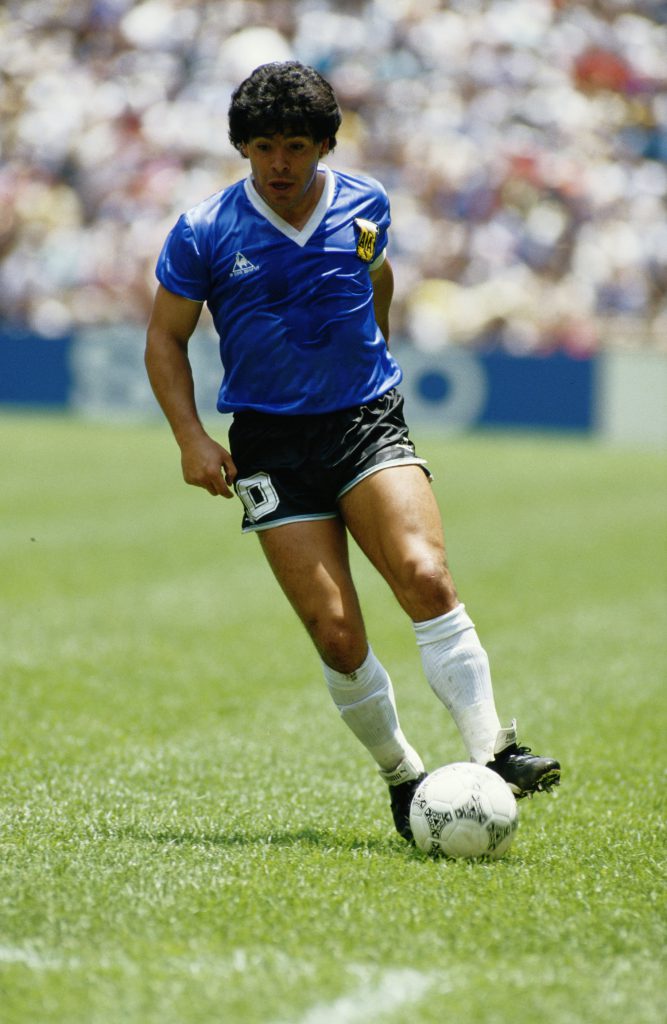
Maradona in azione durante la sfida di Città del Messico (David Cannon/Allsport)
Il più grasso dei due calciò una sfera fatta d’aria e di immaginazione. L’altro lo guardò senza stupirsi più di tanto. «Trent’anni fa non avevo questa pancia, le gambe andavano svelte, mulinavano veloci. Non come adesso. E poi sono arrivati anche i problemi di cuore, gli anni vanno su amico mio…». «Eh…». I due calpestavano il prato lentamente, un passo dopo l’altro, con le scarpe di cuoio che sembravano cigolare come una porta vecchia, e i fili d’erba che frusciavano sull’orlo dei loro pantaloni di stoffa buona. Il tempo sembrava essersi fermato. «E poi cosa ti ricordi?» «Mi ricordo il presidente Alfonsín, con quei baffi e la malinconia negli occhi per non essere andato nemmeno a quel mondiale. Mi viene in mente anche lui…». Fecero altri due passi, e poi si fermarono di nuovo.
«E il gol?». «Eh, il gol. Ebbi la sensazione di vedere un gigante a colori che giocava da solo in mezzo a questi avversari in bianco e nero, avversari che nemmeno mi ricordo, era come se il gol se lo portasse appresso, addosso, sulla schiena, non lo so; la sensazione fu quella di vedere una luce che si muoveva veloce, una luce persino astratta…». Pensarono che nella piena luce del giorno, certe volte, anche i suoni risplendevano. E persino i gesti, i silenzi, i sogni. Tutto risplende nella memoria. «Alla fine fu il gol più bello del mondiale, quello. Già. Forse fu più molto di più». «Sì, fu il gol del secolo. E tu, Diego, cosa ti ricordi?».

